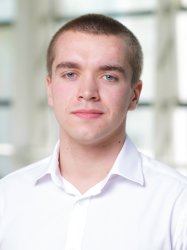By Ethan Errington, a member of the Transition to Zero Pollution PhD cohort.
Undoubtedly, 2020 has been a year of unprecedented change. In such times, mental resilience is crucial. Having come from a background with research and development experience, where you may often expect the unexpected, I had naively thought this would not be a personal issue. However, it would be wrong not to say that at times I have felt lost, struggling to stay afloat in the wake of COVID-19. After all, what use is a lab-based student working from home? In such times I have found that it helps to see the bigger picture and understanding the bottom line of my work has been pivotal in addressing this. So here it is.

We as individuals, a collective and a planet are experiencing an increasing number of catastrophes which are, in some part, man-made – whether those be industrial, medical, political or otherwise. More often than not, these issues are derived from a lack of foresight or understanding for the implications of a given action we make. After all, by priding ourselves on going boldly where no one has gone before, can we always be certain of the consequences? This certainly seems to have become the case in the post-industrial era with regards to the processing and handling of material wastes.

As a researcher, my work focusses on only one aspect of the pollution issue – recovering the oily foodstuffs which many of us pour down our drain, referred to as Fat, Oil and Grease, or “FOG”. Unaddressed, such pollution in the UK has already been associated with the formation of major ‘fatberg’ blockages in our sewers – some of which have been found to weight over 100 tonnes, costing £50 million to control and up to £40 million in damages in the UK annually. As populations grow, more foodstuffs are disposed to drains and our sewer system ages, this problem will only become more pressing. However, there is also hope. If handled correctly, new technologies could enable us to remove and reuse oily pollutants for new purposes, for example as biofuels or in new synthetic products. In the future, ideas like this may be at the heart of treating waste as part of a wider circular economy.
Perhaps counterintuitively, with this big picture in mind, I aim to address fat, oil and grease with science at the nanoscale. That is to say with materials whose properties are well defined at sizes more than one thousand times smaller than the width of human hair. This will enable the development of new technological solutions which more heavily leverage the behaviour of oily pollution for Fat, Oil and Grease separation instead of more typical energy-intensive operations such as manual removal. In doing this, my position within Imperial College London’s Transition to Zero Pollution Cohort (and more widely, the Science and Solutions for a Changing Planet Doctoral Training Programme, or “SSCP-DTP”) is instrumental to my research in enabling me to maintain a balance of perspectives from other academics on both the intricate details of my work and the bottom line it addresses. This is no better demonstrated than through the exposure which these groups have afforded me already – allowing me to better understand both the wider issues of man-made pollution and our current solutions, as well as the way in which my own scientific expertise can interface with that of other, unrelated fields.
Ethan’s work is being carried out within Imperial College London’s Department of Chemical Engineering in collaboration with Scottish Water. If you are interested in finding out more about fatbergs, how they form and what you can do to address them, try listening to Ethan’s discussion during a recent appearance on the Institute for Molecular Science and Engineering’s podcast.